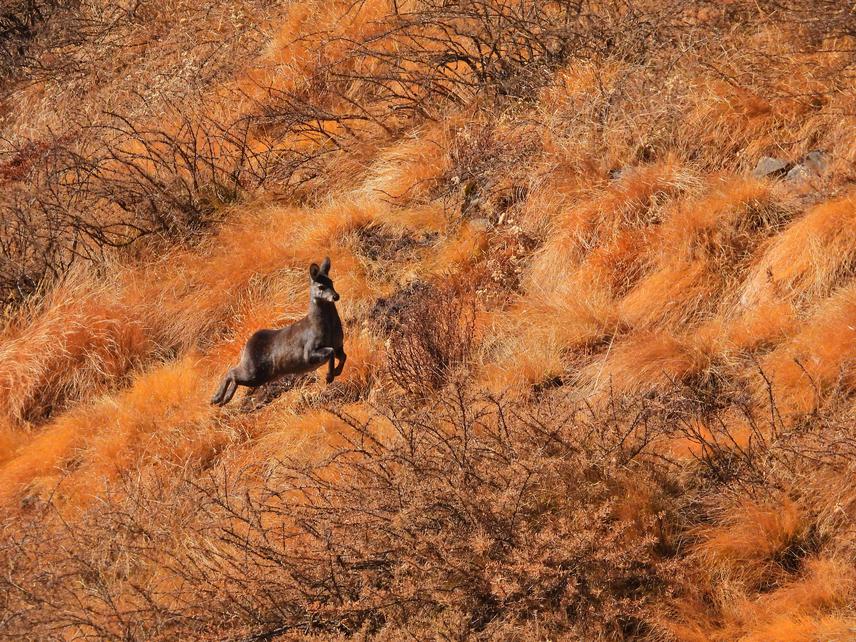Birat Raj Rajak
The study on the endangered alpine musk deer (Moschus chrysogaster) in Langtang National Park aims to provide a comprehensive understanding of the species' population status, distribution patterns, and habitat ecology. This research focuses on identifying and analyzing existing threats to the musk deer, such as habitat loss, poaching, and human-wildlife conflict. By gathering and interpreting data on the musk deer’s habitat preferences and movement, the study seeks to inform effective conservation strategies.

A musk deer. ©Birat Raj Rajak.
A critical aspect of this study involves engaging local communities, school children, and stakeholders to promote awareness and conservation efforts. Through educational programs and workshops, the study aims to foster a sense of stewardship and active participation in the protection of musk deer. Additionally, the study endeavors to pinpoint specific threats to the population and habitat of musk deer, proposing sustainable management and monitoring practices. This will include capacity-building training for local stakeholders, equipping them with the necessary skills and knowledge to implement conservation actions effectively. By integrating scientific research with community involvement and sustainable practices, the study strives to secure the survival of the alpine musk deer in Langtang National Park, ensuring that conservation efforts are both scientifically grounded and socially inclusive. The ultimate goal is to establish a sustainable coexistence framework that benefits both the musk deer and the local human population, fostering long-term ecological and economic stability in the region.